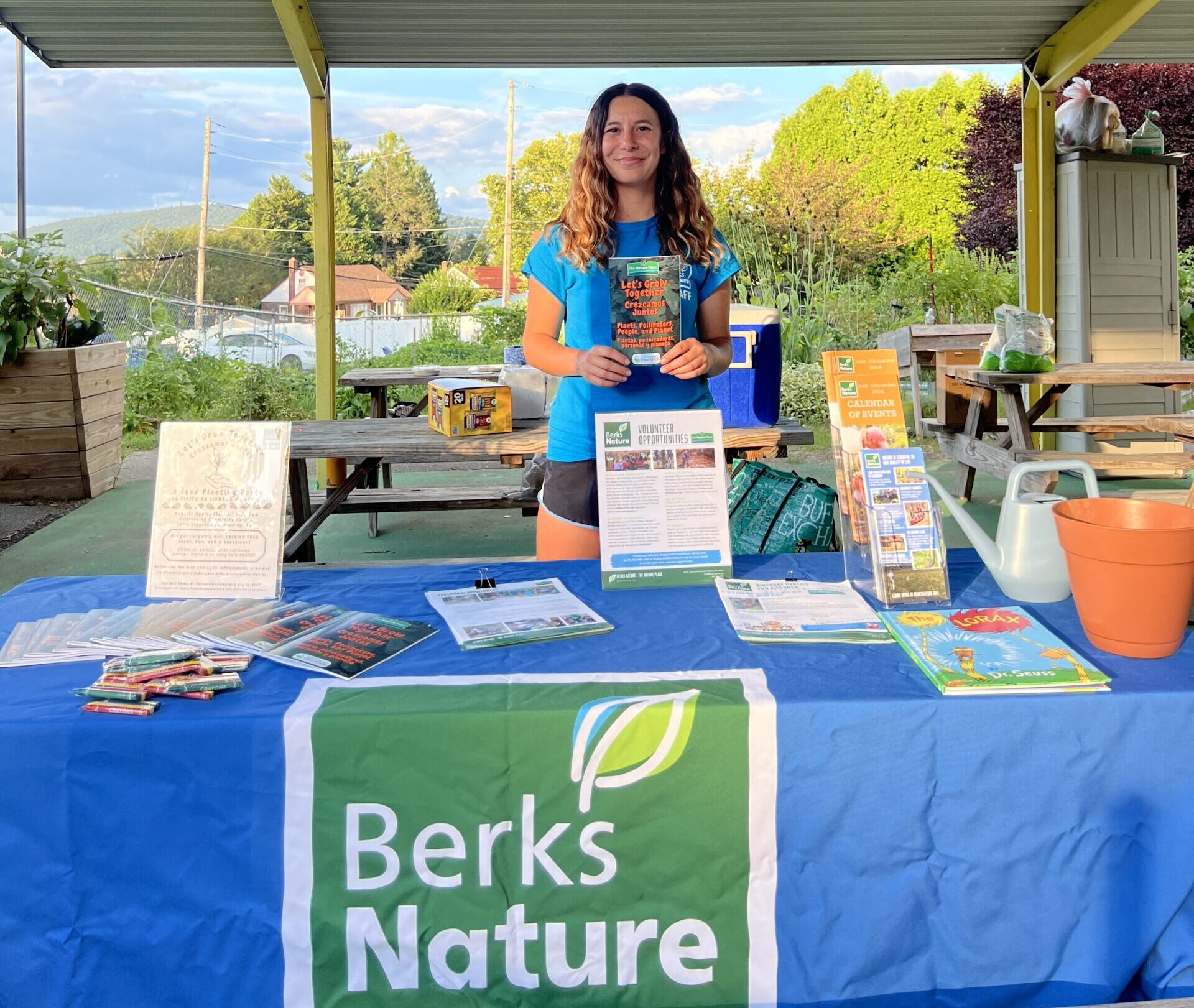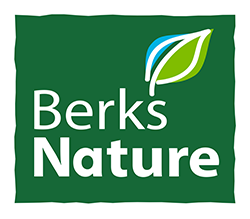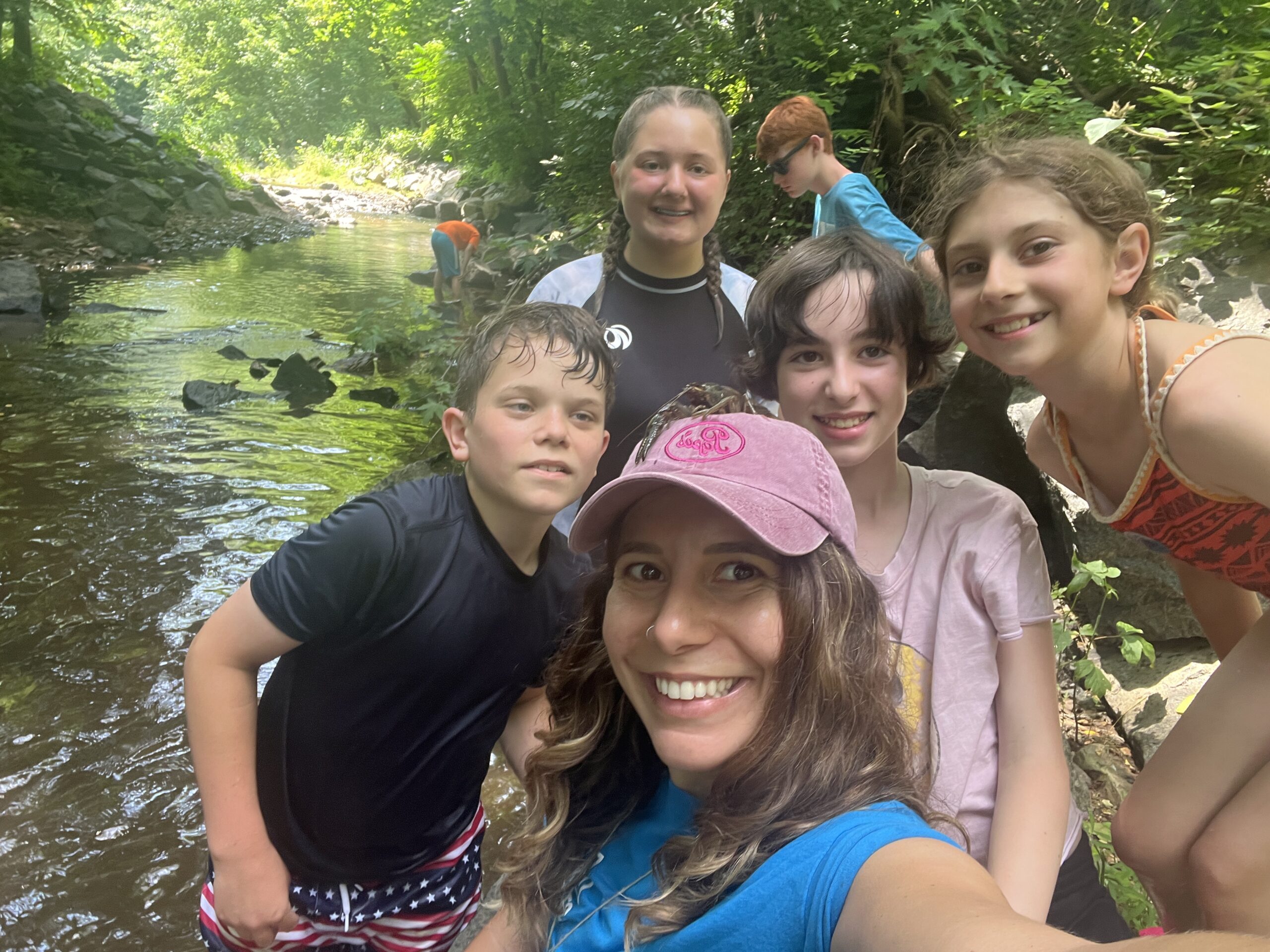When I first stumbled upon Berks Nature in spring 2023 after searching online for volunteer opportunities, I was thrilled to learn that there was a local organization doing such crucial, wide-ranging conservation work.
The Ambassador program seemed like a perfect fit – getting trained alongside other nature enthusiasts to better advocate for and protect the environment was exactly what I was looking for. By the end of my Ambassador training, I knew I had found my people, and I was eager to get more involved in any way I could.
Several months and many volunteer hours planting trees later, I applied for the Alliance for Watershed Education (AWE)’s summer fellowship at Berks Nature, and was honored to be chosen as this summer’s Fellow.
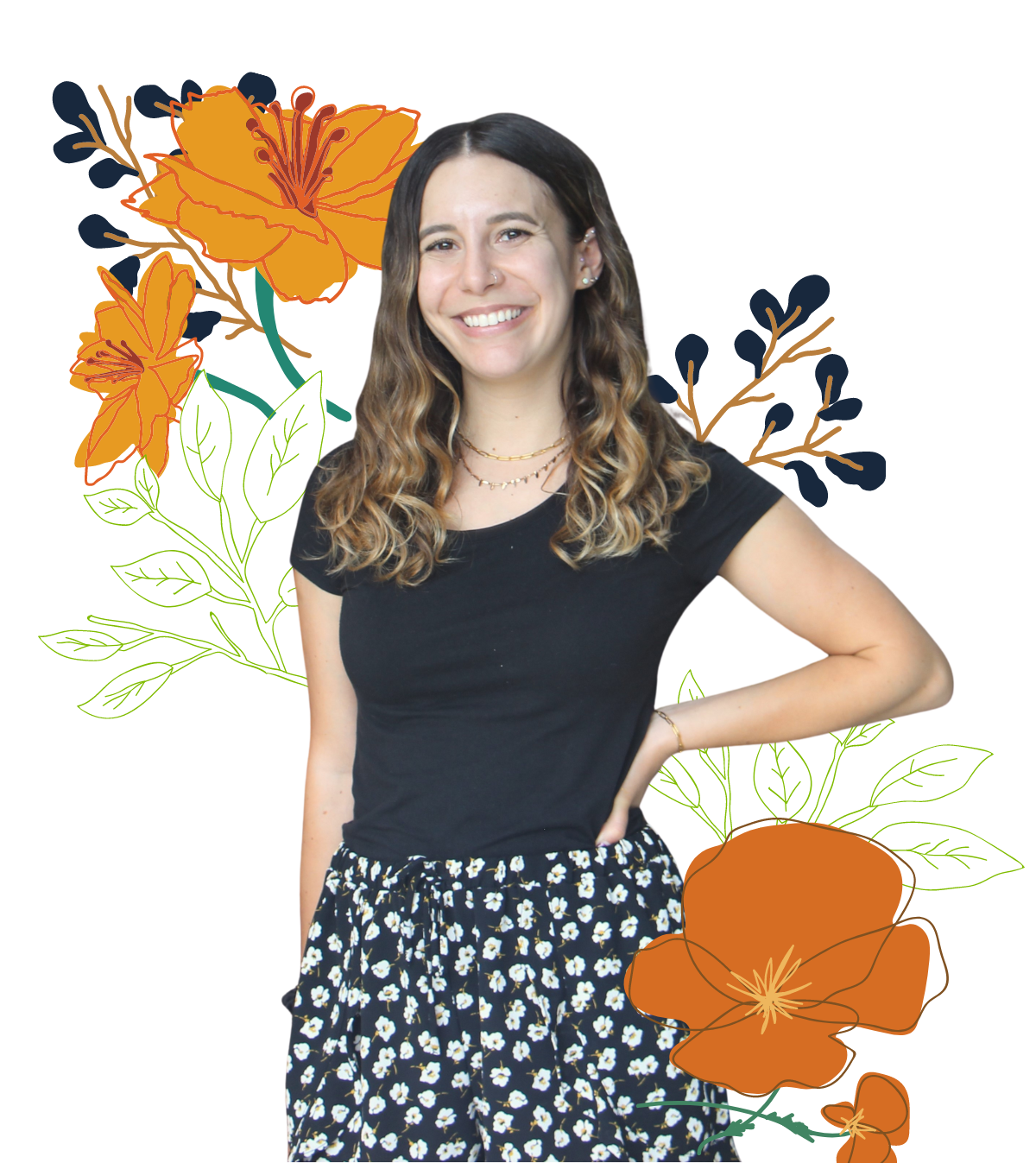
“The Ambassador program seemed like a perfect fit – getting trained alongside other nature enthusiasts to better advocate for and protect the environment was exactly what I was looking for. By the end of my Ambassador training, I knew I had found my people!”
Prior to my time at Berks Nature, I earned a master’s degree focused on environmental education. I wrote my thesis about educational practices that cultivate environmental empathy, or a sense of action-oriented care for, and interconnectedness with, the natural world. One theme that kept coming up in my research was the power of interactive, hands-on educational activities at fostering a sense of environmental empathy.
I had the pleasure of working with Berks Nature’s education team this summer and getting to witness firsthand many of the creative and engaging ways that Berks Nature cultivates connection to nature through interactive educational programs.
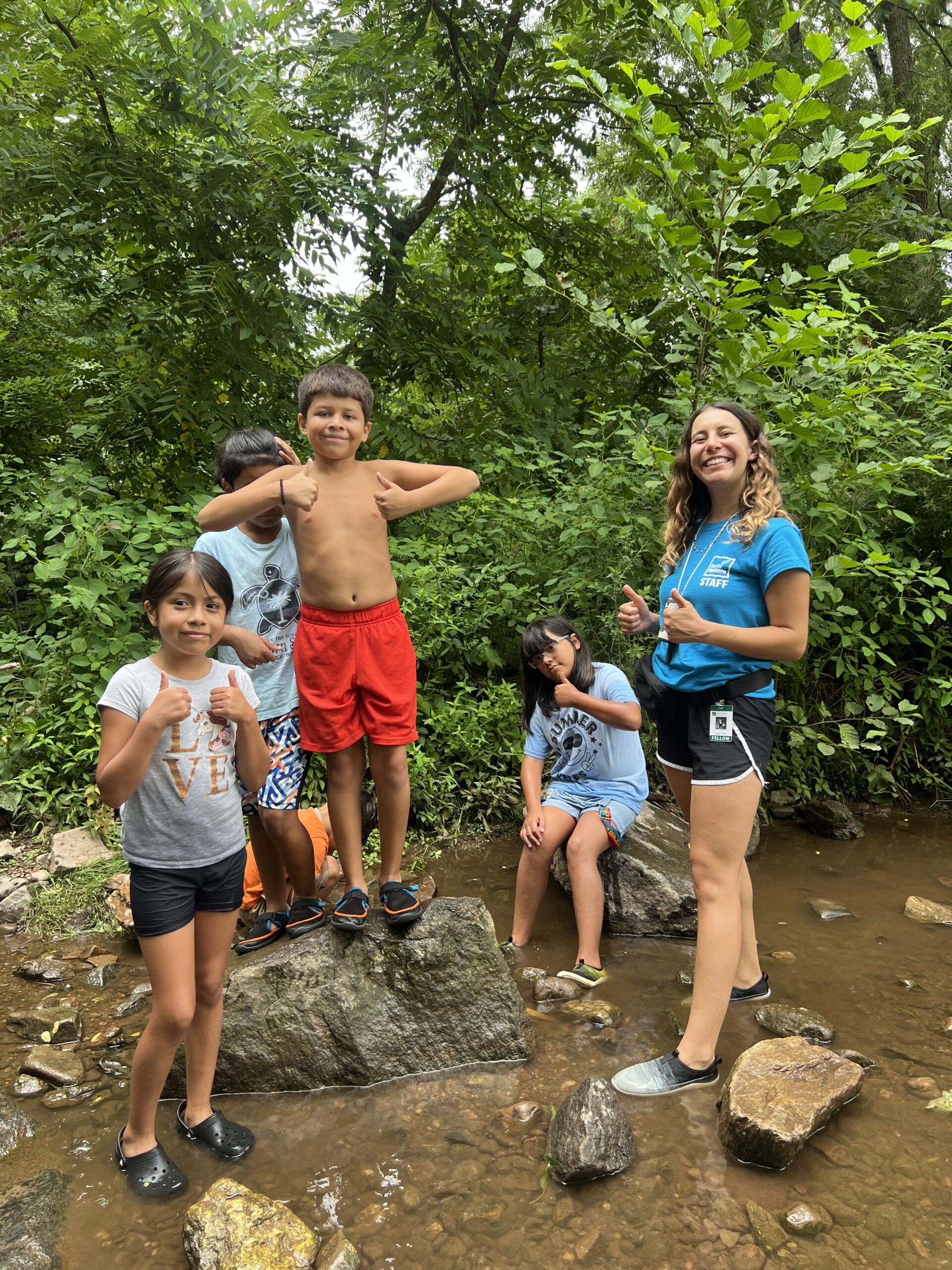
One of my favorite examples of this kind of programming (a shared favorite with last summer’s fellow, I might add) is when we take kids who are visiting Berks Nature into Angelica Creek.
Not only are kids able to experience the joy of wading in the water with their friends, but we, as educators, are also able to simultaneously turn these joyful moments into teaching moments as we explain how the critters they find under rocks can teach us about stream health.
By far, what I enjoyed most this summer was having the opportunity to help nurture these kinds of connections to nature with the kids who visit Berks Nature, and getting to witness the delight they experienced from those connections.
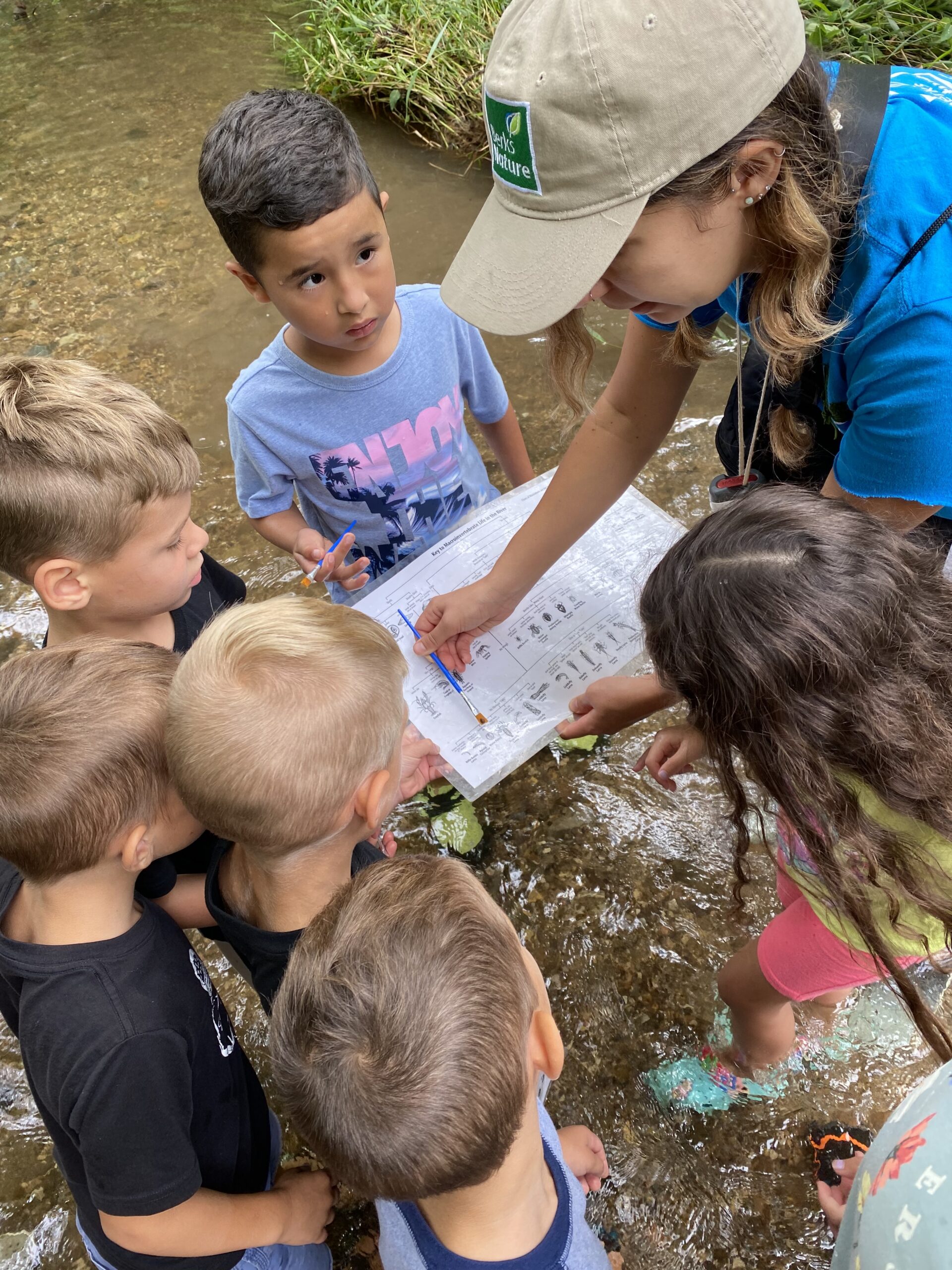
As an AWE fellow, part of my work this summer included a self-designed capstone project, and I knew from early on in my fellowship that I wanted my capstone to center on cultivating connectedness with nature through interactive education. I wrote and illustrated a booklet called “Let’s Grow Together: Plants, Pollinators, People, and Planet” that is designed to promote food sovereignty by empowering people to grow their food in containers at home, whether or not they have access to outdoor space.
The booklet also includes information about the pollinators that help our food grow, as well as information about the personal, community, and environmental health benefits of eating plants. I also translated the booklet into Spanish so that it would be accessible to more members of our community.
In addition to creating the booklet, I hosted a free seed planting party at a local community garden, and gave out pots, seeds, soil, and copies of the booklet to all who participated. By growing our own healthy food from seed to harvest, not only can we nurture our personal connection with nature, we can also have agency in shaping a healthier, greener tomorrow with our own hands.
Speaking of shaping a healthier, greener tomorrow, I am honored to say that I am starting a new position as an Assistant Teacher in the Berks Nature Preschool, where kids get to spend 75% of their time outside, and feel connected to nature every day. I am so grateful for the ways I have been able to take part in Berks Nature’s meaningful conservation work, and I could not be more excited for the ways my role in that work will grow as a preschool teacher.
